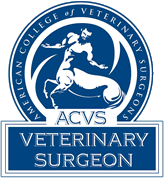FAQs about Pet Surgery
When should I stop feeding my pet prior to surgery?
Generally, you should not feed your pet after midnight on the night before surgery. It is also best not to offer any water in the morning. If your pet has any medical conditions, such as diabetes, check with your veterinarian regarding food and water prior to surgery.
Should I continue to administer medications around the time of surgery?
Medications prescribed by your veterinarian may be given, although some medications should not be taken on an empty stomach. Check with your veterinarian if you are unsure about whether to continue to give medications. Do not give any medications without your veterinarian’s consent as many human medications can harm animals.
When will I hear about the surgery?
I will call you shortly after the procedure is completed. But you can always call and check up on your pet if you like.
What should I expect with postoperative care?
Postoperative instructions vary with the procedure that your pet is having. I will provide you with detailed written discharge instructions that should answer all of your questions. But please do not hesitate to contact me if you have any questions or concerns at any time.
When should sutures be removed?
Generally, skin sutures/staples are removed 10-14 days after surgery. However, this can sometimes vary depending on the procedure that your pet is having and on any factors that might delay healing in your pet. This will always be outlined in your discharge instructions.
How do I care for a bandage/splint?
Make sure that the bandage is always clean, dry, and has not slipped. Call or recheck with your veterinarian if the bandage is soiled, wet, or is slipping. Most bandages allow access to your pet’s toes- check them several times per day to make sure that they are warm and not swollen.
Remember that bandages protect and provide support to your pet’s leg, but they also hide the leg from view. It is very important to recheck with your veterinarian for the recommended bandage changes.
